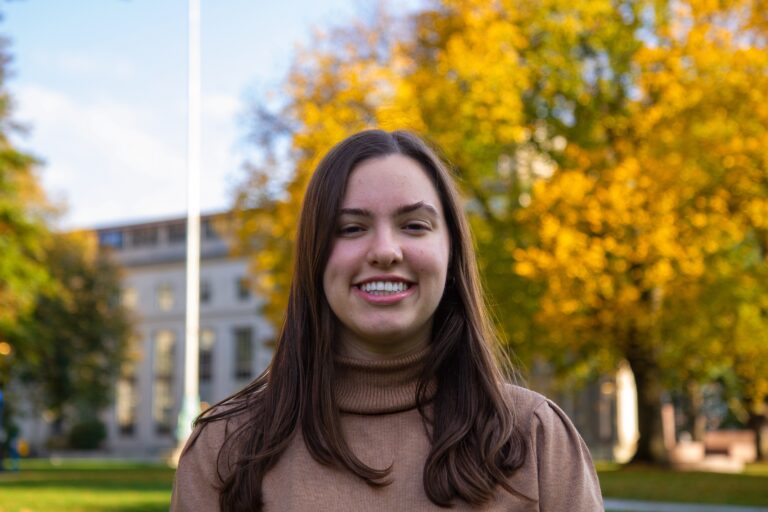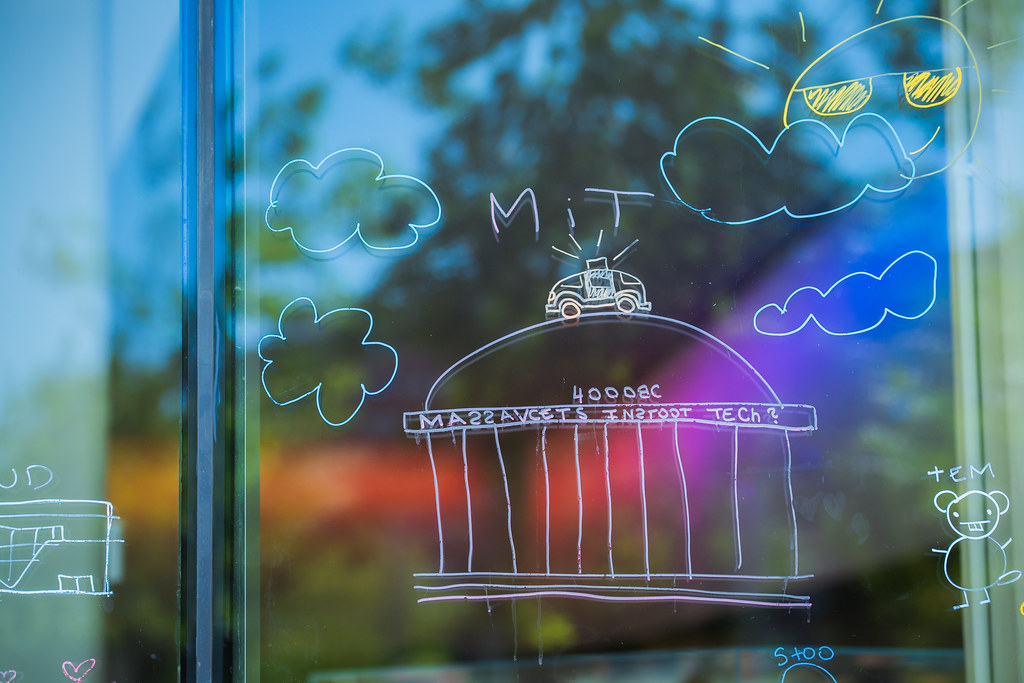Lindsay Bolino
Major in Biological Engineering
Minor in Spanish

What’ve you enjoyed most about your area of study? Was there a particular discovery, new skill or way of thinking, or insight that you found especially valuable? Please share an example from your favorite class or experience.
I had not anticipated how much of my Spanish education would go beyond language-learning skills and enrich my cultural and historical understanding of the Spanish-speaking world. Being able to discuss complex themes of inequality, health, sexuality, culture and more, along with the literacy/artistic analysis skills I’ve gained from having these conversations, has been applicable and useful outside of my language classes. One of my favorite Spanish classes that I’ve taken was 21G.711, Advanced Spanish Conversation & Composition: Perspectives on Technology and Culture. This class was especially meaningful because I could bridge the technologies I was learning about in my Course 20 (Bioengineering) classes and understand their ethical and cultural implications, particularly on Hispanic groups and societies. Additionally, I’m currently taking 21G.740, The New Spain: 1977-Present. This class has been really interesting for me to learn about the massive cultural and social shifts in Spain in a post-Franco society— and I have really enjoyed learning about this material since I previously visited Spain as a part of the MIT Global Teaching Labs program. As a senior, Spanish classes have also been really enjoyable from the friends that I have made over the years, some of which have been taking the same classes as me since freshman year.
How does the knowledge from this field, or your interest in it, combine with your other major or minor studies at MIT?
My major at MIT is Course 20 (Biological Engineering), and we have frequently discussed large societal shifts in Hispanic societies as a result of health technologies throughout my Spanish classes at MIT. I think it’s vital for me to understand the broad implications of these technologies and be able to recognize their advantages and their pitfalls. While I have usually done this typically in the context of the Hispanic world for my Spanish coursework, I think it’s extremely important to be mindful of this in general and will continue to use those skills I developed in my Spanish classes.
An MIT education includes study in the scientific, technical, social science, arts, and humanities fields. How do you think that wide range of knowledge and perspectives will be valuable to you – for your career success and for your enjoyment of life?
MIT has demonstrated the value in a well-rounded education that includes both technical subjects and humanities subjects. I think my Spanish coursework has made my educational experience extremely fulfilling and offered a community of students and professors that I would not have otherwise encountered. Especially as my Spanish language skills have improved and the classes have become more advanced, the Spanish department has evolved to a place where I get to discuss large societal issues and exchange ideas in a collaborative and open environment. I think having that sort of community has been very beneficial for my personal fulfillment and holistic education.
What are your plans for the future?
Next fall, I will be joining the Pharmacology PhD program at Duke University!
